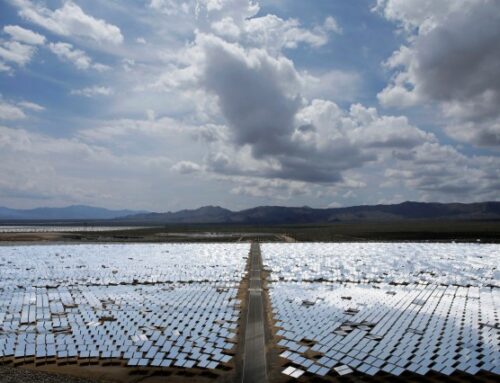Uruguay’s Green Energy Success Story Takes an Unexpected Turn
February 8, 2025
ByHaley Zaremba– Feb 08, 2025, 10:00 AM CST
- Uruguay, a leading country in renewable energy adoption with 98 percent of its energy coming from renewable resources, has announced plans to explore for offshore oil and gas reserves.
- The decision to explore for oil and gas is primarily driven by economic factors, despite Uruguay being a net energy exporter and having a successful renewable energy program.
- The move has generated controversy within Uruguay, with concerns raised about the environmental impact on marine life and the potential damage to Uruguay’s image as a

For years, Uruguay has been extolled as a poster child for green energy ambitions. Last year, the small South American country generated a jaw-dropping 98 percent of its energy from renewable resources and proudly paved the way for a new form of energy sovereignty in a changing climate. The country of fewer that 3.5 million people has been held up as a case study for what can happen when good policy and public and political willpower come together to implement a sweeping and swift energy transition.
The primary driver of Uruguay’s energy transformation was wind power, which currently makes up a stunning 38 percent of the country’s energy mix. At present, Uruguay’s fossil fuel plants provide just 2 percent of the nation’s energy and are only rarely activated in the infrequent case that renewable power production falls short of demand.
‘;
document.write(write_html);
}
“In less than two decades, Uruguay broke free of its dependence on oil imports and carbon emitting power generation, transitioning to renewable energy that is owned by the state but with infrastructure paid for by private investment,” Earth.org recently reported, calling the country “a model for transitioning national power systems away from fossil fuels.”
This is why it was so completely shocked when Uruguay (very quietly) announced that it would be expanding offshore exploration for fossil fuels in 2025. The Uruguayan state-owned energy company Ancap estimates that there is a 3 to 23 percent probability that oil or gas will be found in areas off the Uruguayan coast. Awareness of the possible existence of oil and gas reserves in the area was raised after a recent discovery of reserves in Namibia, located on the Western Coast of Africa.
While that may seem completely unrelated, it’s actually quite relevant, as Namibia and Uruguay used to share borders before the continental drift that broke up Pangea. This means that they also shared the prehistoric carbon-based life forms that, over the course of millions of years, turned into the oil that now runs our planet. “We have a very similar geology, very similar spaces,” Santiago Ferro Castelli, energy transition manager at Ancap, recently told the Guardian.
Now, after this realization, seven contracts have been drawn with some of the biggest names in the global oil and gas industry to begin exploration in the waters off of Uruguay.
The sudden pivot away from its sterling green reputation toward oil and gas production is highly contentious within the Uruguayan ranks. The issue is not energy security – in fact, Uruguay is a net energy exporter to neighboring Brazil and Argentina, and has been lauded for “showing the world how it’s done” when it comes to establishing successful and sovereign decarbonization on a dime. In fact, Uruguay is far more energy secure now than it was when it was a fossil fuel importing nation. Just a few decades ago, rolling blackouts were a common occurrence in Uruguay. Not so today.
Instead, the move seems to be purely economically motivated. “Despite being one of the wealthiest countries in Latin America, Uruguay, with a population of 3.4 million, faces problems with the cost of living, education and poverty,” the Guardian reports. One fifth of Uruguayan children and adolescents live in poverty.
However, the decision to explore for oil and gas reserves was not made by the Uruguayan people. “Our people have not chosen to be an extractivist country. There wasn’t the opportunity to vote,” says Andrés Milessi, a marine biologist and director of the non-governmental project Mar Azul Uruguayo. Amongst detractors, there are serious concerns about the impact that the drilling will have on local marine life.
There is also major hand-wringing about the impact that this development will have on Uruguay’s image as a green leader. Ambitious and unwavering commitment to green energy put Uruguay on the map. What will compromising that vision cost it?
By Haley Zaremba for Oilprice.com
More Top Reads From Oilprice.com
Search
RECENT PRESS RELEASES
Related Post



